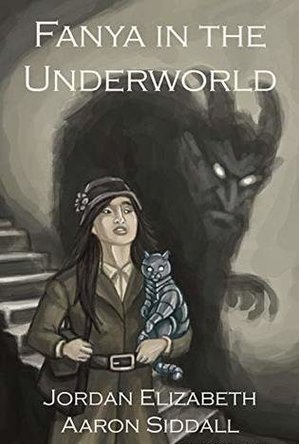EmersonRose (320 KP) rated The Eye of the World (Wheel of Time, #1) in Books
Nov 20, 2019
― Robert Jordan, The Eye of the World
There is perhaps nothing more magical than finding yourself fully immersed in a story. The first book in The Wheel of Time series, The Eye of the World, creates a full world of places, histories, species, religions, and myths. Robert Jordan first introduces you to the simple town of Emonds Field and the characters that live there. Then he takes us with those characters to explore a vast and more complex world. We are taken on a journey through different cities and meet a variety of people including meeting strange creatures and beings with strange, magical powers. Including Trollocs, Aes Sedai, Warders, and Myddraal. Jordan has an extraordinary ability to create intriguing mythologies for his world and creating species that have fully formed cultures and politics.
But before I get too far ahead of myself let us start with Robert Jordan. He is an American 31ulybtb-yl-_ux250_author from South Carolina, whose real name is James Oliver Rigney, JR. He lived from 1948 to 2007. He wrote books in many genres including fantasy, historical fiction, western and dance criticism each under a different pen name. The first book in his The Wheel of Time series was published in 1990. He was able to finish eleven books in the series before he passed, leaving his extensive notes to renowned novelist Brandon Sanderson who wrote the last three books of the series, finishing in 2013.
Personally, when reading a book, the most important thing for me is to become invested in at least one of the characters. Once I am, I’m completely dedicated to the book. Robert Jordan has a large group of main characters and switches perspective between them throughout their journey. Picking out a single main character is very difficult, Rand al’Thor might be the closest but Matrim (Mat) Cauthon and Perrin Aybara and possibly Egwene al’vere and Nynaeve al’Meara create the central cast. They are the natives of Emonds Field before their adventures take them journeying to places unknown. Each of them is special and through the course of the book, you uncover the power each has. What is amazing is how Jordan is able to make you care deeply for each character and while he is switching perspective you never find yourself, bored. This is impressive for often in novels that switch perspective there is that one storyline you do not care about. Upon finishing the first book I can honestly say that I do not have a single favorite out of the group but love them all and care about what will happen to them next.
My one issue with the book came with frustration at what I call Tolkien Naming Syndrome. With such a mass of characters it is not surprising that some names start to sound similar but like Arwen and Eowyn there are two females with feelings for one of the boys whose names are oddly similar Elayne and Egwene with other female names rhyming such as Moiraine and Morgase while the male names tend to sound different and are thus easier to keep apart and remember. Depending on what you want in a story, the other thing that keeps this book from being unique is the black and white stance on good vs. evil. The two sides are clear and do not leave much room for the morally grey.
The book offers a great mix of solved mysteries while leaving you with an abundance of questions to make you need to continue reading the story. It truly is an epic adventure story. Fulfilling the good vs. evil battling and grand adventures and meeting strange creatures and discovering new magic. While it might not have the grand battles of Lord of the Rings it has the magical journey and strange adventures that create the amazing epic fantasy novel. I plan on reading the next book soon and highly recommend this book to fantasy readers as it offers great characters, an amazing world and interesting rules on magic.
Hazel (1853 KP) rated Fanya in the Underworld in Books
Dec 6, 2018
Author Jordan Elizabeth has written many stories for young adults of all sorts of genres. With Fanya in the Underworld, Jordan tackles steampunk fiction with elements of fantasy and the paranormal. Set in Alaska during the 19th century when the state was still owned by Tsarist Russia, humans rely on steamtech and spirit magic to fuel their industrious cities.
The story begins shortly after the death of Fanya's father, leaving her as heir to his estate. Unfortunately, her step-mother has overruled her right to her inheritance. By making a fuss to the council, Fanya inadvertently puts both her life and the life of her younger sister in danger. Desperate to protect her sister from the clutches of a mysterious Englishman, Fanya finds herself in the wilderness where the indigenous, magical folk live. Despite having lived in a city her entire life, Fanya soon discovers she has far more in common with the people in the untamed wild.
Whilst a work of imaginative fiction, Fanya in the Underworld works with the historical truth about settlers moving to Alaska, Canada and the United States. Those from Europe who travelled to North America drove out the indigenous folk, destroyed their land and culture and deemed them to be lesser beings. The same has occurred in this novel in which the natives are banned from the cities, treated like animals and even murdered just for being who they are.
By caring so much about her sister, Fanya discovers the truth about the way the cities developed and is shocked by the revelation. Although her sister is at the forefront of her mind, her actions cause huge changes in Alaska resulting in a favourable, although unpredictable, conclusion.
Jordan Elizabeth draws the reader into the steampunk world of Tsarist Alaska. With the aid of illustrations by Aaron Siddal, Fanya in the Underworld is an exciting story unlike any written before. Unique characters, unique scenarios, and a fantastic ending, what more could anyone want?
Hazel (1853 KP) rated Witch Hunter (The Witch Hunter, #1) in Books
Dec 17, 2018
The sixteenth century is a dangerous time for wizards and witches to live – a place where magic is illegal. Sixteen-year-old Elizabeth Grey spends her time disguised as a kitchen maid as she goes around hunting down witches. However when she is accused of witchcraft after being found in possession of herbs, her life is over. Suddenly the most wanted wizard in Anglia, who claims she can help him as much as he can help her, rescues her. Finding herself surrounded by the enemy, Elizabeth must decide whether she should escape and turn them in, or begin to trust people she has been raised to believe are evil.
<i>Witch Hunter</i> is a young adult fantasy novel targeted at those with a love of both historical and magical stories. Initially Elizabeth wants to capture and send all wizards and witches to their deaths, but after her rescue begins to realize that not all she has been led to believe is true. Magic is neither inherently good nor bad; it is what someone does with the power that matters. This story is full of action from beginning to end as Elizabeth learns who to trust and who needs to be destroyed.
At the beginning of the book there was a particular reference to something that felt inappropriate for young readers, however the remainder is exactly what the reader expects to find within this genre. Underneath the magical storyline is a message that urges readers not to jump to conclusions and be judgmental, particularly about things that they do not fully understand. Substitute magic for mental illness, disabilities or different cultures, and you have something that readers of all ages can relate to today.
<i>Witch Hunter</i> is the first in what promises to be an incredible series by the author Virginia Boecker. Although the key issue was resolved within this first book there is an even larger issue that still needs settling. Readers who enjoy this novel will be eagerly waiting to find out what Elizabeth and her new friends do next.

Free Books for Kindle Fire, Free Books for Kindle Fire HD
Book and Lifestyle
App
'Free Books for Kindle Fire, Free Books for Kindle Fire HD' brings you daily updates on the best new...

Susan Sontag: The Complete Rolling Stone Interview
Book
Published in its entirety for the first time, a candid conversation with Susan Sontag at the height...

MWG Magazine
Magazines & Newspapers and Games
App
Miniature Wargames looks at all forms of miniature wargaming, including historical, fantasy, Sci-Fi,...
Dana (24 KP) rated The Crown's Game (The Crown's Game, #1) in Books
Mar 23, 2018
This book was pretty cool! It is not like a lot of the other fantasy novels I read because it is set in Russia in 1825 and has some actual historical people and ideas in it. By the way, that is one of my favorite parts of this book. The fact that it is able to mix fact and fiction together so well is a feat not many can do, so I applaud Ms. Skye for doing just that.
The world felt so real and very well developed. I got the feeling that a lot of research went into creating this book and I am glad she did because it feels authentic and inhabited which is often a problem in fantasy novels such as this. Though she draws on history and fact, she understands she is able to pull in here own creative licenses because she has to make a world that will fit her story. I enjoyed those facts a lot and I am excited to see what else we will get to see in the next book (which I still need to buy).
Now onto characters, then plot.
The main character Vika is a very strong female lead, which I love in any story, not just in fantasy. She is powerful and she knows it. While this can lead to arrogance and a little too much self-esteem, but she is brought to be humbled quite a bit throughout the book, which is actually nice. It grounds her. While she is a strong character, this fact gets her into trouble sometimes because she thinks too much of herself. This arrogance is inevitably what kills her father. She is blinded by the strength she now has and, instead of questioning why she all of the sudden got so much stronger, she just rolls on without a care in the world.
I love Nikolai. In my humble opinion, he is so much better than Pasha because he opens himself up to being hurt but doesn't get angry or act like a spoiled brat when people do something wrong. Nikolai is a dreamer, something I appreciate a lot. He has his heads in the clouds sometimes and needs someone to bring him back down. While he is competitive, just like Vika, he is also very thoughtful. He could have done many things with his magic, but each time, he did something for the people, whether to bring them joy or to restore the magic of what they once knew, he does it for people other than himself. MAJOR SPOILER IS COMING UP NEXT: In his final act of the book, he gives his life to save Vika and if that isn't selfless, I don't know what is. He is caring and kind and I just wished he could have been completely happy. He loved Vika and he deserved so much more than he got. Also, that plot twist that he is the tsar's son, holy crap, I did not see that coming at all.
Now onto Pasha. I am not really a fan of Pasha, to be completely honest. He thinks he is so worthless in comparison to Nikolai even though he is going to be the tsar of Russia. Why is he making everything into a pissing match with his best friend after he finds out Nikolai also loves Vika? Seriously, he could have anyone he wanted, but no. He just has to have an enchantress. He is very selfish and does not think about how his actions will always have consequences and that is a little too reckless for me. Even though he knows he is going to become the tsar, he doesn't take his responsibility seriously at all. I am just not a fan of him. I hope he does not end up with Vika because she deserves so much more than him.
What I love most about these characters is that they have faults and issues that they have to overcome and deal with before they can move on to the next stages of their lives (well, some of them at least).
Onto the plot!
I thought this story was very well structured. I enjoyed the pacing and the flow of everything as well. It felt like it was an actual competition to see who could get my attention the most. (It was Vika and Nikolai as my top two, the others were kinda annoying at times).
Overall, I really enjoyed this book and I am excited to pick up the next one! If you have not already, give this book a read and tell me what you think!

Rooftoppers
Book
This is the winner of the Blue Peter Book Award and the Waterstones Children's Book Prize, and...
Lottie disney bookworm (1056 KP) rated She Who Became The Sun in Books
Aug 30, 2021
After a fortune teller destines her brother for greatness and her own life to be worthless, a peasant girl may be expected to resign herself to her fate. However, upon her brother’s premature death, the girl seizes an opportunity to adopt both his name and his destiny.
She Who Became the Sun is a brutal, hard hitting debut to The Radiant Emperor series. Comparisons tend to quote Mulan due to the setting and the nature of Zhu disguising her female birth, but this is honestly where the comparison ends. For me, this novel is as if Mulan was in the Game of Thrones novels: warring factions, political backstabbing and the quest for power, Parker-Chan really doesn’t hold back.
As the debut novel, She Who Became the Sun has a lot of work to do in world-building and revealing the history behind the main characters. As a result, the pace of writing can feel a little slow at times but the final few chapters are well worth any previous perseverance.
Despite the pace in the middle of the novel, Parker-Chan’s writing is lyrical and intense simultaneously. Zhu’s desire to live gives a desperate, raw undertone to every one of the chapters under her POV. This is in direct juxtaposition from our other main character, Ouyang, who exudes cold detachment.
Zhu and Ouyang are both orphans, both queer and, as a girl and a eunuch, are both shunned by society. However, they consistently find themselves facing each other on opposite sides of a war: they may be ‘like and like’ but they are both characters who believe that their path is already decided for them, and neither will let anyone stand in their way!
Zhu and Ouyang are complex, well-developed characters, but they are nothing without their stunning supporting cast! I particularly loved Xu Da, Esen and Ma who never showed any prejudice against our main protagonists and purely accepted them for who they were.
She Who Became the Sun intertwines historical fiction with fantasy, war strategies with spirits and death with fate. This novel manages to be gritty and violent whilst also exploring gender identity in an open and refreshing manner. Morality is blurred and ghosts are rife: I can’t wait to see what happens next.
Thank you to Netgalley and Pan Macmillan for gifting me an e-ARC of She Who Became the Sun.

Princes and Kings (A Rose in a Thorn Bush #1)
Book
In the year 1240 AD, the land of Gwynedd Wales found themselves without a leader when their king,...
Historical Fantasy




